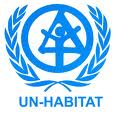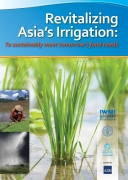News and Articles
Case studies on Water Management by Industry from the CII-GBC National Awards for Excellence in Water Management (2007)
Posted on 21 Apr, 2010 12:43 PM![]()
The CII-GBC National Awards for Excellence in Water Management 2007 are an important step towards encouraging, supporting and applauding industry efforts to conserve water and reduce toxic effluent discharge. As India's economic boom gathers more and more momentum with each passing year, industrial water and energy use and related environmental impacts are going to be among the most critical factors in resource sustainability debates in the country and elsewhere. The companies portrayed represent a wide spectrum of industry: paper, metals, agro-processing, synthetic fibre, petroleum, transport, cement, energy, fertilizer, soft drinks and more.
Financing on-site sanitation for the poor: A six country comparative review and analysis - A report by WSP (World Bank)
Posted on 20 Apr, 2010 06:58 PMThis report by the Water and Sanitation Programme (WSP) draws attention to the fact that a very high percentage (40%) of the population in the world does not have access to basic level of sanitation, which has serious health consequences and puts a considerable economic burden on the poor. The report explores the issue of what can be the most appropriate financing mechanisms to meet the sanitation needs of the poor.
Rejuvenation of community toilets - A policy paper by UN-HABITAT and Government of Madhya Pradesh
Posted on 20 Apr, 2010 04:12 PM The policy paper examines the condition of community toilet in terms of its infrastructure, operation & maintenance, uses and payment of user charges. The paper is a result of a joint collaboration between Water for Asian Cities (WAC) Programme of UN-HABITAT and the Directorate of Urban Administration & Development, Government of Madhya Pradesh.
The policy paper examines the condition of community toilet in terms of its infrastructure, operation & maintenance, uses and payment of user charges. The paper is a result of a joint collaboration between Water for Asian Cities (WAC) Programme of UN-HABITAT and the Directorate of Urban Administration & Development, Government of Madhya Pradesh.
In Madhya Pradesh, WAC is supporting Asian Development Bank-financed project in cities of Bhopal, Gwalior, Indore and Jabalpur to improve and expand urban water and sanitation services. This study has been taken up to monitor implementation of the water and sanitation related targets.
Desertification and land degradation status mapping of India - A paper by ISRO
Posted on 20 Apr, 2010 04:12 PMThis paper by ISRO broadly deals with desertification and the process of land degradation in arid, semi-arid and dry sub-humid areas. It describes the classification system, methodology and results of the desertification & land degradation status mapping carried out for the entire country on 1: 500,000 scale using multi-temporal Resourcesat AWiFS data. The dominant processes of land degradation, viz. water erosion, vegetal degradation, wind erosion, salinization, waterlogging, frost heaving, frost shattering and mass movement have been deciphered and mapped using satellite data.
Revitalizing Asia's Irrigation: To sustainably meet tomorrow's food needs - A report by IWMI and FAO
Posted on 20 Apr, 2010 03:14 PM This document by International Water Management Institute (IWMI) highlights the urgent need for improving irrigation systems to enhance food production to meet the needs of the growing population in Asia, in the context of increasing urbanisation and the challenges posed by climate change.
This document by International Water Management Institute (IWMI) highlights the urgent need for improving irrigation systems to enhance food production to meet the needs of the growing population in Asia, in the context of increasing urbanisation and the challenges posed by climate change.
Experience has shown that improvement in irrigation systems have led to improvement in agricultural growth in Asia in the past where irrigated agriculture still continues to be the heart of rural growth.
However, experts estimate that demand for food and animal feed will double during the next fifty years in Asia. This will require better management of the existing irrigated lands as opening up of new alternatives is constrained by lack of land and water resources.
Press release : UL certifies Kimberlite Chemicals for health effects in drinking water
Posted on 20 Apr, 2010 11:25 AM
For Immediate Release
Underwriters Laboratories Certifies Kimberlite Chemicals for Health Effects in Drinking water
Kimberlite Chemicals Becomes First Indian Company to Earn UL
Certification for Antiscalant Water Treatment Chemicals
Bangalore, India, April 14 2010 – Underwriters Laboratories (UL), a global leader in drinking water quality and safety, today announced that Kimberlite Chemicals India Pvt. Ltd., received UL certification for its antiscalant water treatment chemicals. Kimberlite’s antiscalant water treatment chemicals will now bear the UL Classified Water Quality Mark, indicating certification to ANSI/NSF Standard 60 for health effects.
UL launched its drinking water product certification program in India in 2009 and has been working with a number of Indian companies on a broad range of products including disinfection and oxidation chemicals, coagulants, drinking water treatment units, gaskets, butterfly valves, sediment filter cartridges and activated carbon. Kimberlite, a renowned company known for its world-class technology product and service in the field of specialty chemicals and coatings, is the first Indian manufacturer to be certified through UL’s water program for antiscalant water treatment chemicals.
UL’s certification of Kimberlite’s antiscalant chemicals provides verification that these chemicals have been independently tested and validated to meet both industry standards for health effects in drinking water as well as UL’s rigorous certification requirements. Antiscalant chemicals are used to protect reverse osmosis (RO) membrane life and are used in industrial RO purifiers.
Using energy pricing as a tool for efficient, equitable and sustainable use of groundwater for irrigation
Posted on 20 Apr, 2010 07:14 AMThe paper analyzes the potential impacts of energy pricing on efficiency, equity and sustainability in groundwater use. The overall objective of the study is to analyze the socio-economic viability of pro rata pricing of electricity in agriculture. Specific objectives are:
- To study the impact of change in mode of electricity pricing on efficiency and sustainability of groundwater use by well owners
- To analyze the overall impact of electricity pricing on the farming system of well owners, including the economic prospects of farming
- To analyze the impact of change in mode of electricity pricing on the functioning of water markets
Evolving an integrated approach for improving efficiency of electricity-driven pumping of groundwater for agriculture - A discussion paper by CWS and Prayas
Posted on 20 Apr, 2010 06:57 AMThis study explores possibilities of local energy and groundwater management in Andhra Pradesh with the involvement of farmers for constructive contribution in improving the field situation in electricity supply and groundwater management.
Ground water pumping using electricity is a complex issue, leaving all actors - the farmers, distribution company, State government and environment conscious analysts - frustrated and dissatisfied. Farmers are frustrated with the poor quality of electricity supply, distribution companies with the low revenue, State government with the high levels of subsidy and the environmentalists with inefficient water use resulting in falling water tables. Level of mistrust between actors is also quite high. The process of evolving a sustainable solution is not clear.
In this context, this study by Prayas Energy Group and Centre for World Solidarity (CWS), explores:
- Grassroot and state-level insights, regarding electricity use and water management in agriculture
- Developing a simple methodology in consultation with farmers for collecting baseline field data and analyzing it towards improving the efficiency in a strategic way
- Possible areas of intervention in future
Water Policy in India - A brief overview: A paper by Centre for Public Policy (IIM Bangalore)
Posted on 20 Apr, 2010 06:30 AMThis paper by the Centre for Public Policy (CPP) of the Indian Institute of Management (IIM) Bangalore adds to the debate on water policy in India, and provides a general overview of the main characteristics of irrigation development post-Independence and a review of its beneficial and adverse impacts. The problems that need to be addressed and measures needed to resolve them are highlighted. It recognizes the vital role of expansion of irrigation in transforming agriculture from one of near stagnation in the pre-independence period to one of sustained growth during the past five decades.
Estimation of replenishable groundwater resources of India and their status of utilization - A research paper by CGWB
Posted on 19 Apr, 2010 09:49 PMThe paper describes the methodology used in the groundwater resource estimation and the results of the latest country-wide assessment. In India, dynamic groundwater resources are estimated jointly by the Central Ground Water Board (CGWB) and State governments at periodic intervals. The latest estimates of dynamic resources are based on groundwater resource estimation methodology-1997 (commonly known as GEC-1997). These estimations are widely used in formulating various groundwater development and management plans. The paper also discusses future strategies on groundwater resource estimations.